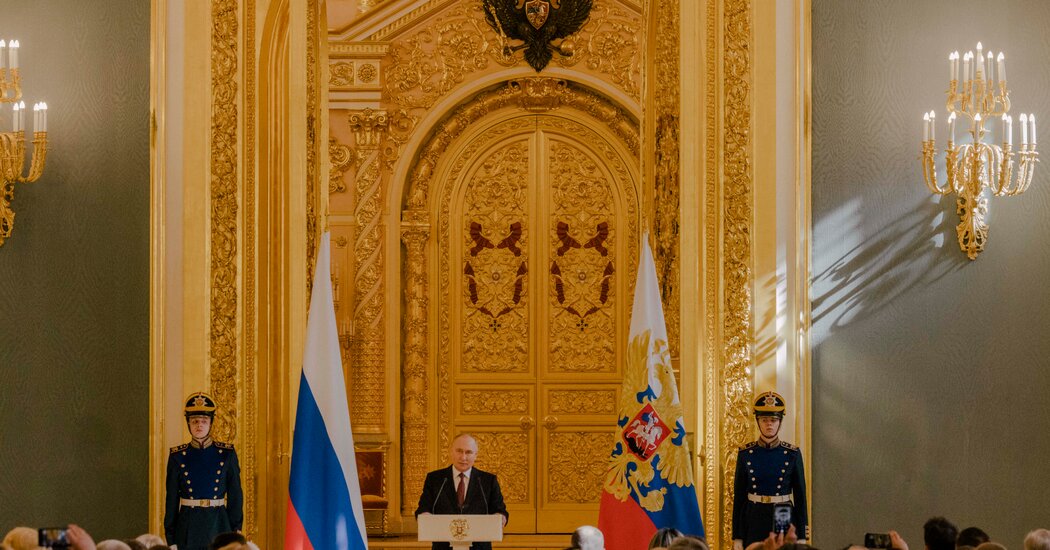The Kremlin did not bother to hide its efforts to influence the 2024 presidential election, as it did in the past.
In the final days before Tuesday’s vote, Russia abandoned any pretense that it was not trying to interfere in the American presidential election.
The Kremlin’s information warriors not only produced a late wave of fabricated videos that targeted the electoral process and the Democratic presidential ticket but also no longer bothered to hide their role in producing them.
A fabricated interview claiming election fraud in Arizona was conducted by the director of a Kremlin think tank, Mira Terada, who returned to Russia in 2021 after serving a prison sentence in the United States for money laundering. Another video on Rumble, the video-sharing platform, targeted the Democratic vice-presidential nominee and featured John Mark Dougan, a former deputy sheriff from Florida who had previously denied working for the Kremlin’s propaganda apparatus.
What impact Russia’s information campaign had on the outcome of this year’s race, if any, remains uncertain. There is no doubt, though, that it reflected an increasingly brazen effort by the Kremlin, one that has left the American government with little to do to except to rebut the falsehoods as they gain popularity. More than one official compared it to the arcade game Whac-a-Mole.
“That’s the thing — it feels so impotent,” said David Salvo, a former State Department official who is now managing the Alliance for Securing Democracy at the German Marshall Fund of the United States. “I mean, all we can do at the moment really is call it out.”
This year’s election underlined how much foreign interference — and disinformation generally — has become baked into American politics. Increasingly unfettered social media platforms like X and Telegram, along with the country’s constitutional protections of free speech, have opened the door for foreign influence, even if American law prohibits it.
